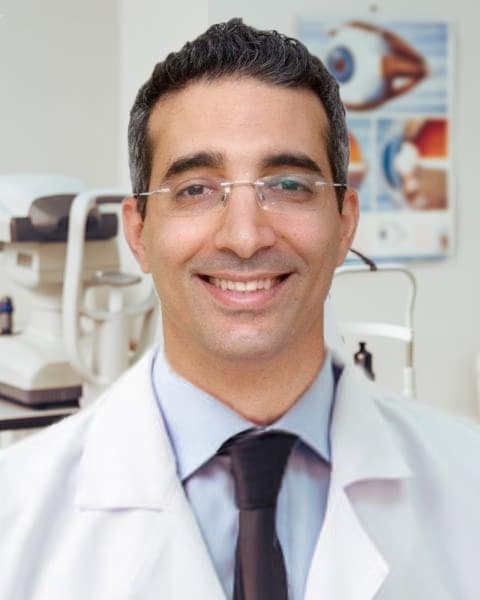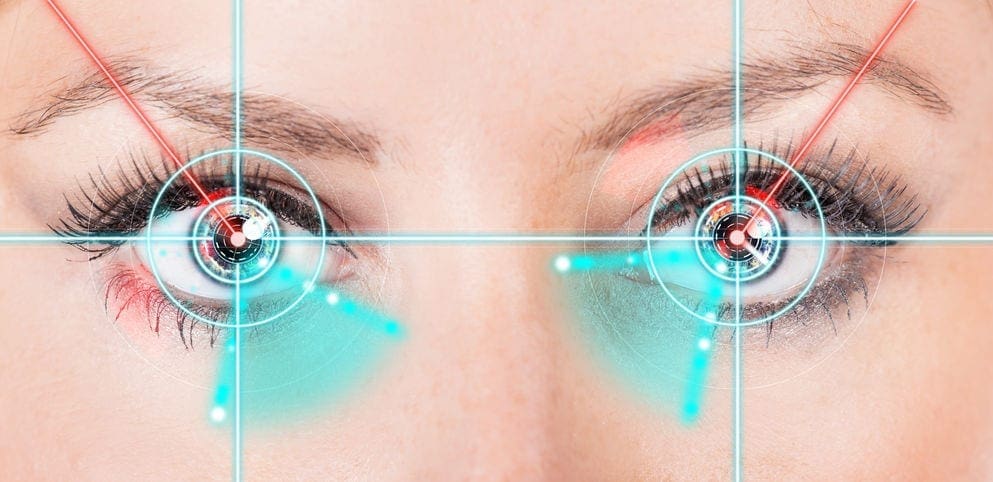Cataract Surgery: Everything You Need to Know
ד"ר אוחיון » Cataract Surgery: Everything You Need to Know



DR. Avi Ohayon
Ophthalmologist, specialist in retina and cataract surgery
If you or someone you love is considering cataract surgery, dozens of questions are likely swirling around your head. You're probably wondering, am I a good candidate for cataract surgery? What are the benefits and risks involved? What exactly happens during cataract surgery? And so much more. Well, if your inner thoughts sound anything like that, relax. You're in the right place because below, we have broken down the ins and outs of cataract surgery and answered some of the most common questions surrounding cataract surgery. So, let's get into it!
Who needs cataract surgery?
If you're advised to have cataract surgery, you'll need to understand what cataracts are. You can and their causes. But, in short, cataracts are a cloudy area that develops on the eye's lens. They can cause difficulties with processing light sources, clear vision, and ultimately lead to complete loss of vision in some cases.
Developing cataracts become increasingly more likely as we age. For some, it may start with blurry vision or difficulty looking at bright light sources. Many individuals start developing cataracts in their 60s; the most common age for someone to have cataract surgery is around their early 70s.
That being said, cataracts can develop significantly earlier in life, including in childhood and infancy. However, these cases are extremely rare and often cause congenital cataracts, which form soon after a baby is born, or juvenile cataracts, which can develop later in childhood.
What are the different options for cataract surgery?
There are three primary forms of cataract surgery; Phacoemulsification, Extracapsular surgery, and Laser-assisted cataract surgery. Your surgeon will be able to lay out the options that they believe are best suited to you, walk you through the processes, and answer any questions. There's no harm in getting a second opinion if it brings peace of mind.
What happens during cataract surgery?
Phacoemulsification
This surgical procedure uses an ultrasound probing wand to break up and disperse the cloudy lens inside your eye. A microscopic probe will be inserted into the cataract through microscopic incisions in the cornea; the ultrasonic waves will emulsify or break up the cataract, which the surgeon then removes from your eye in pieces.
Extracapsular surgery
This surgical approach is traditionally less common and is usually turned to when the phacoemulsification is unsuccessful in breaking up the cataract. The surgeon will make a slightly larger incision and remove the cataract in one piece. The artificial lens is implanted in place, and the incision is stitched closed.
Laser-assisted cataract surgery
The surgeon will use a laser to create the opening of the anterior capsule of the lens and soften the cataract in this surgical approach. Then the surgery continues as the traditional phacoemulsification method.
How to prepare for cataract surgery?
One of the first steps is likely that you will be referred to a specialist by your family physician. The surgeon will perform an assessment and understand your lifestyle and determine which surgical approach would be best for you. During this assessment, you can ask any and all questions you may have, such as the risks and benefits, use of glasses, lens type, recovery, and anything else.
The most important decision you and your surgeon have to do prior to surgery is to determine which visual result would you like to have after the surgery depending on your visual needs.
What to expect after cataract surgery?
Immediately following the surgery, your vision will be blurry, but it will gradually return (or improve!) in 1 to 3 days or perhaps up to a week. This is just your eye healing and is perfectly normal, but avoid rubbing or pushing your eye, even if itchy. Your surgeon may ask you to wear a patch, a protective shield for the rest of the day post-surgery.
Many people have remarked the colors appear brighter and more potent after cataract surgery, and their sight is crisper than they are used to. This is because the cataract has been muting colors and images.
Your surgeon will assess your eye 1 to 2 days after your surgery and again one-week post-surgery to monitor the healing. He may also prescribe eye drops or additional medication to support recovery and avoid infection.
What are the benefits of cataract surgery?
Cataract surgery is a straightforward and swift procedure done as an outpatient procedure with a short recovery period. It can vastly improve your vision and eye health as well as improve your overall quality of life.
What are the risks of cataract surgery?
Complications after cataract surgery are rare and most of them are treatable. Risks include but not limited to, lens dislocation, macular edema, retinal tear or detachment, bleeding, infection, loss of vision.
Q&A
Cataract surgery is generally a safe, simple procedure that takes roughly 10 to 45 minutes. The vast majority people can return home later that same day.
In most cases, yes. You'll be given something to relax you, but you shouldn't feel any pain; you may feel light pressure or see bright lights.
This varies; make sure you check with your individual provider.
Nope! In over 99% of cases, patients are treated as outpatients and can return home later that same day once their surgeon clears them.
No. Your sight will be blurry, so you must arrange a ride home. Most people can return to driving after about 1-3 days, but this can vary.
Most discomfort should disappear within the first couple of days, but healing can take up to 8 weeks.



DR. Avi Ohayon
Ophthalmologist, specialist in retina and cataract surgery






